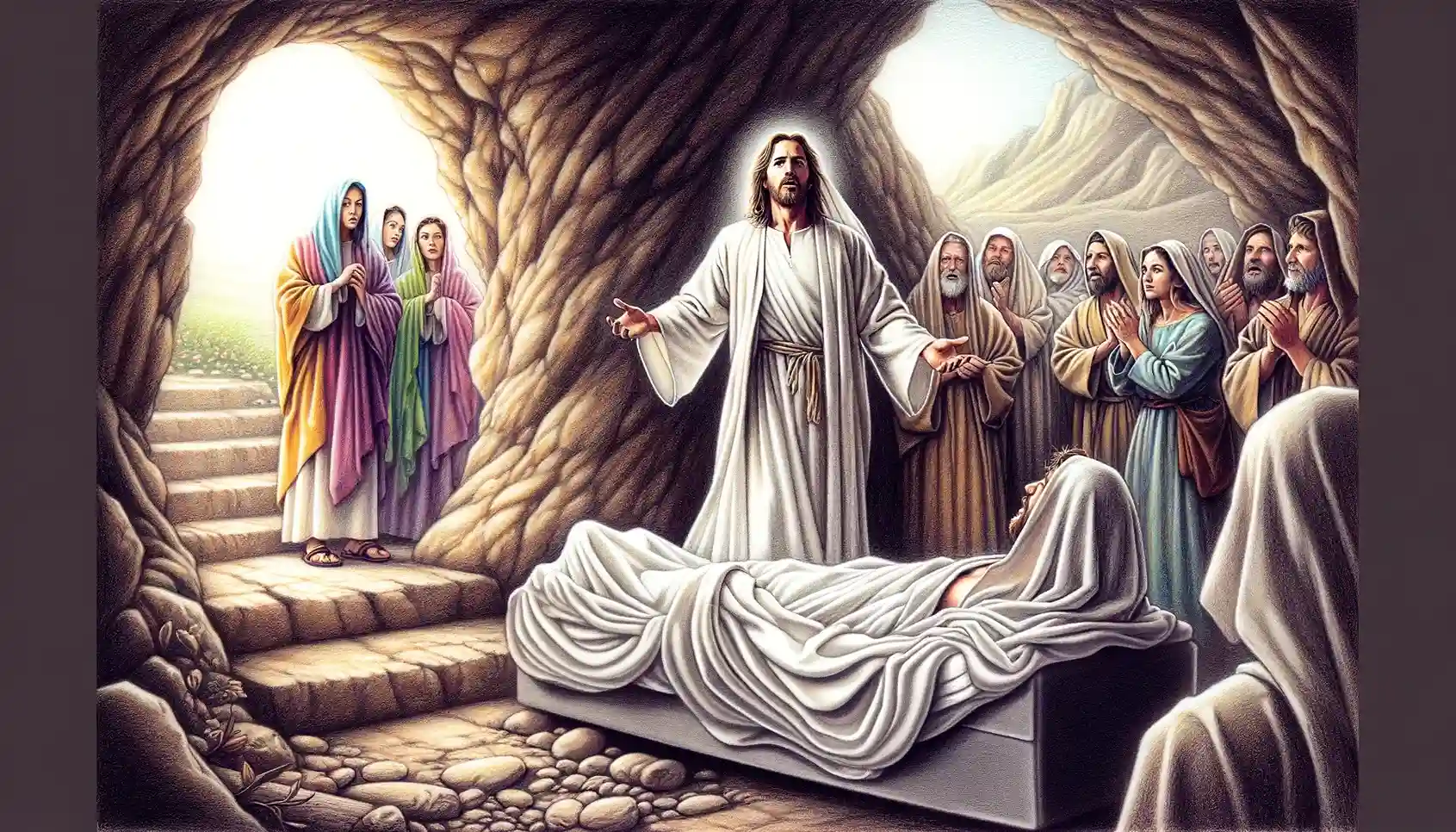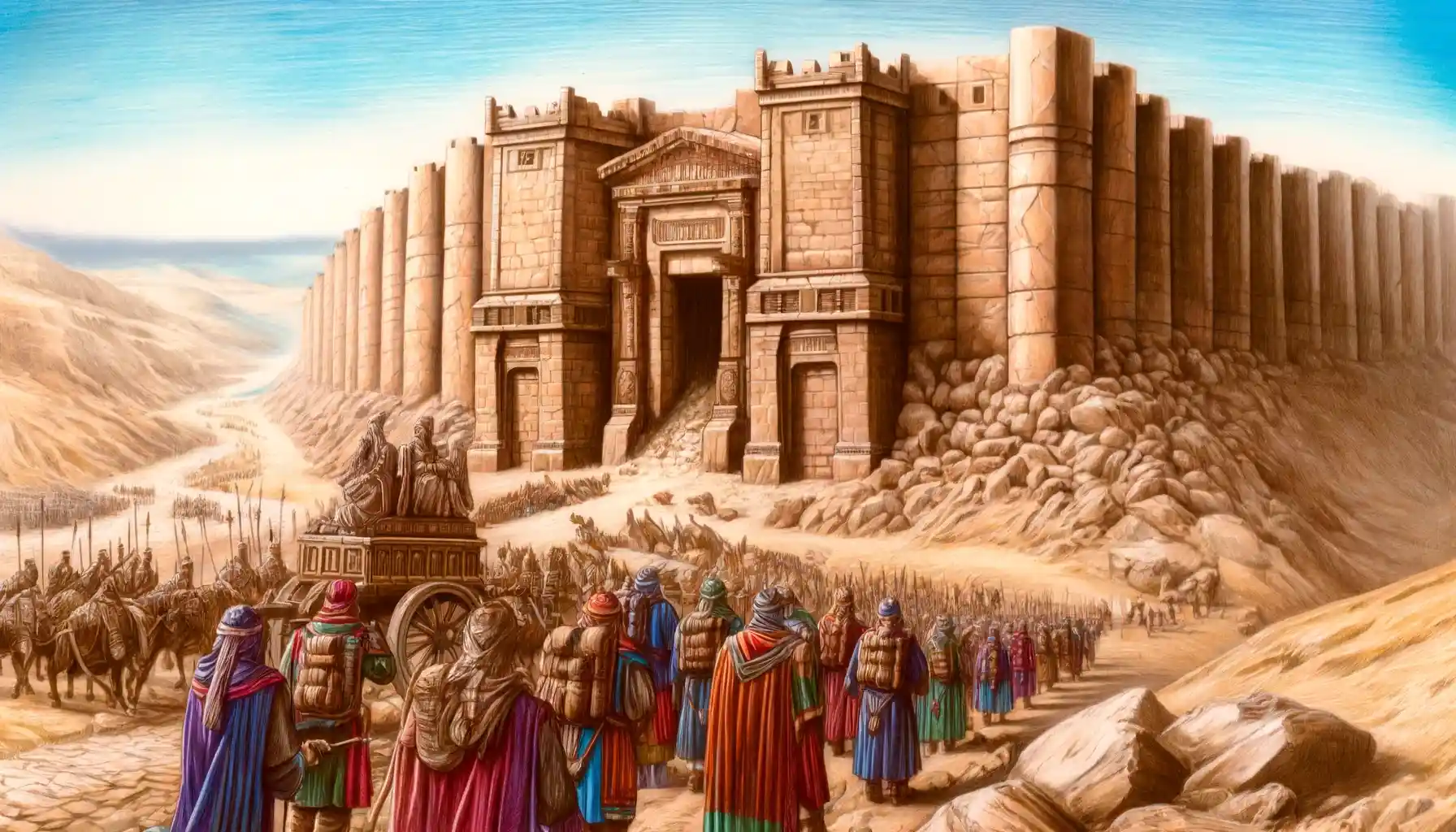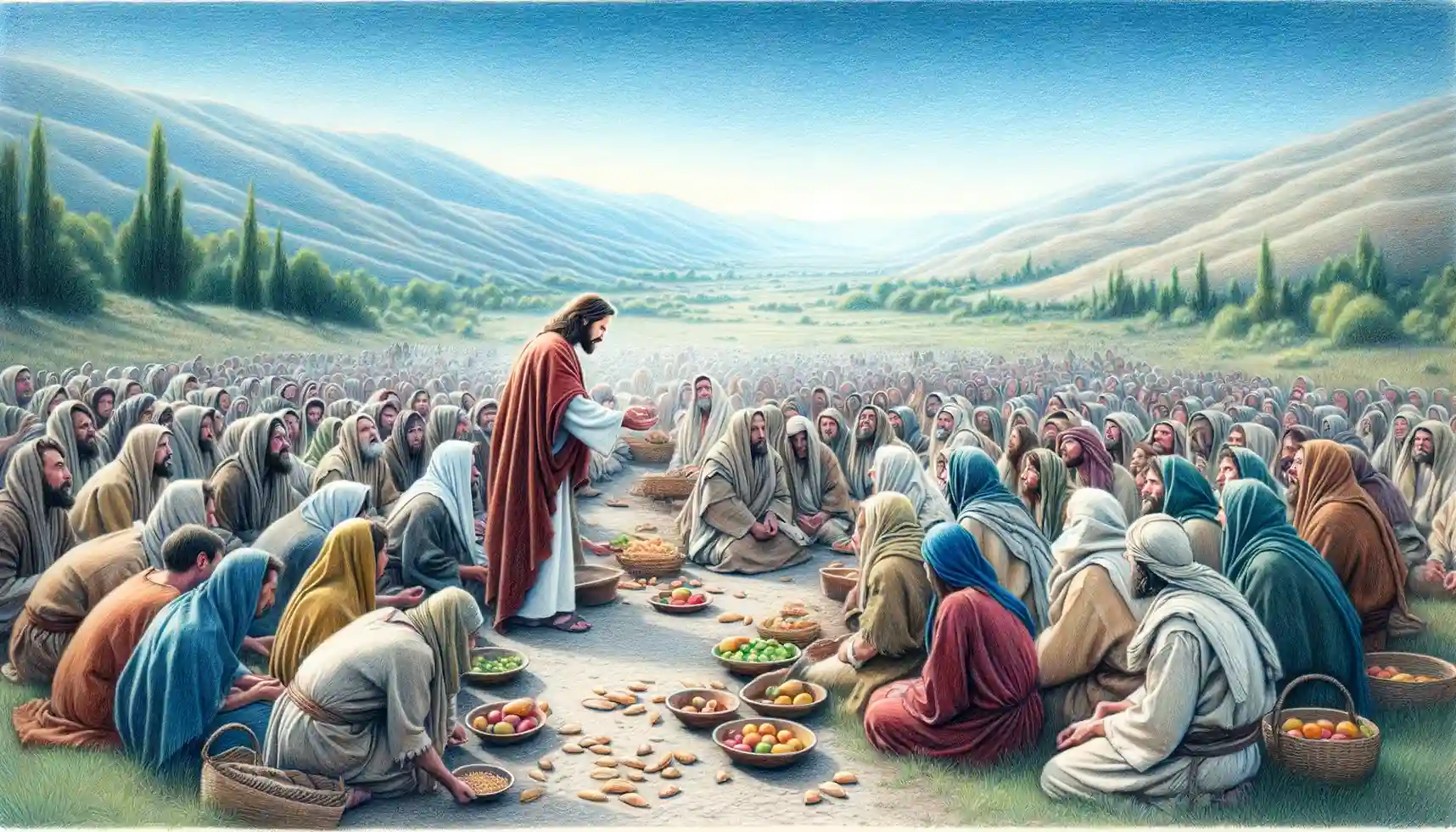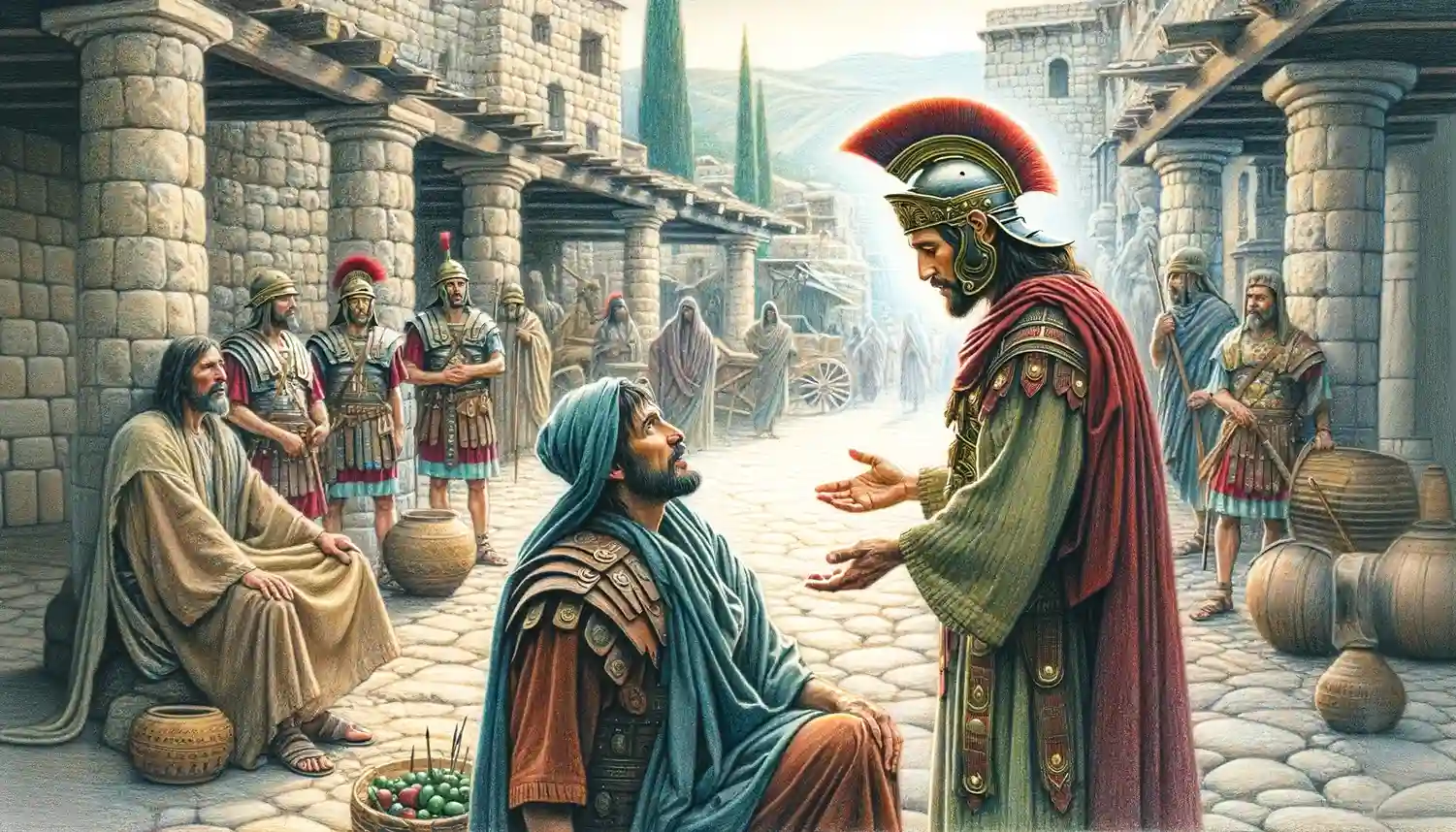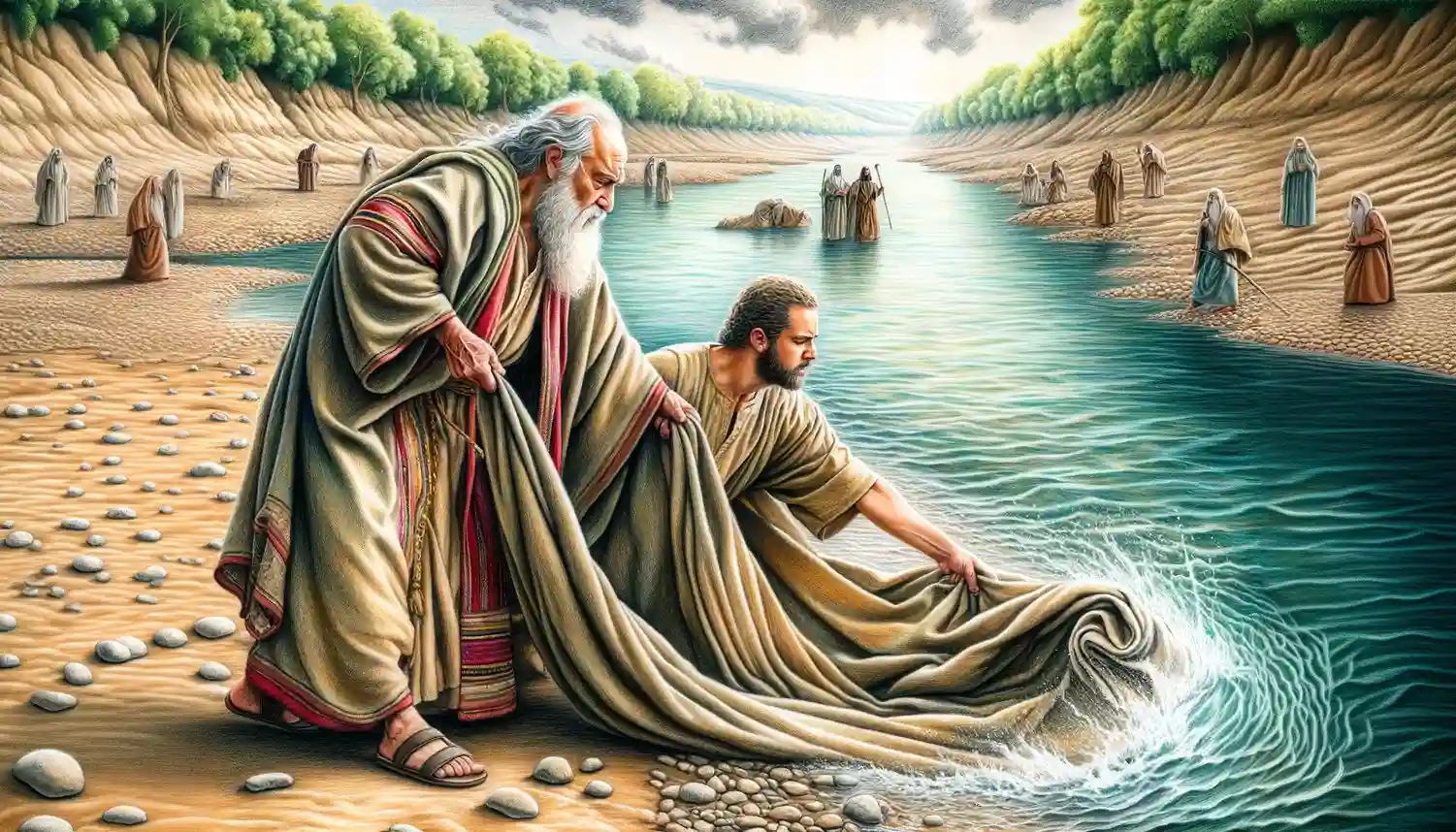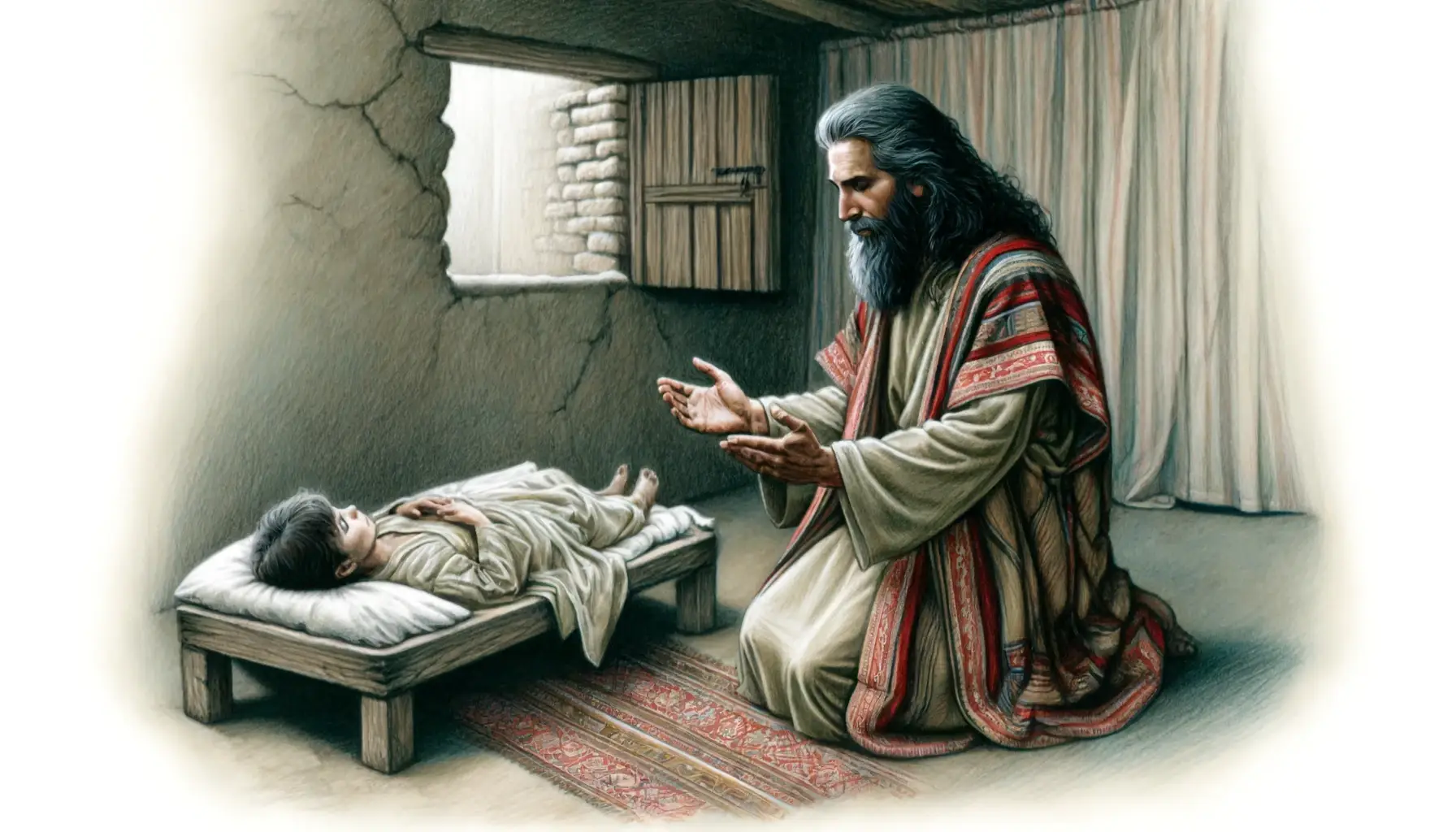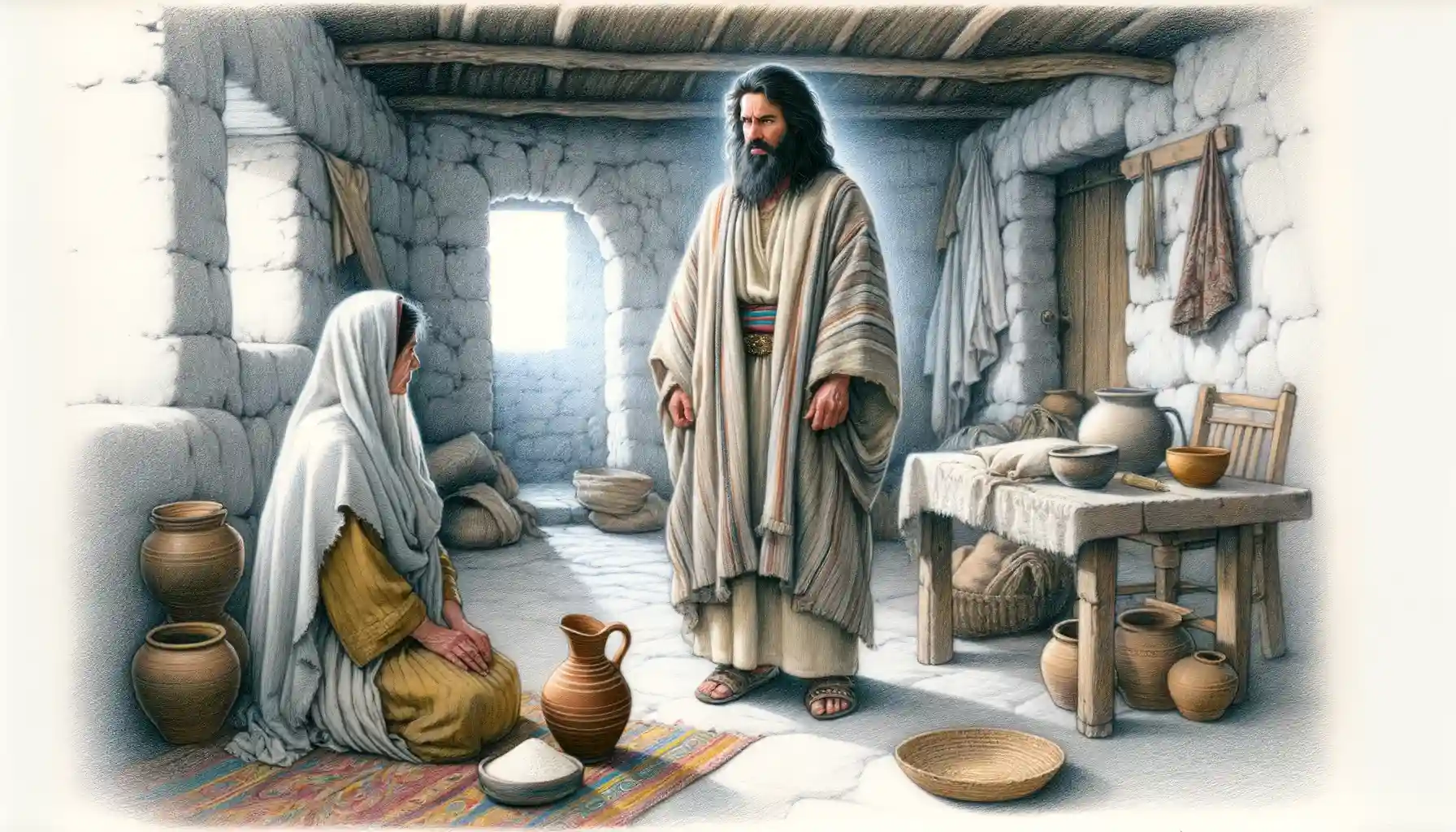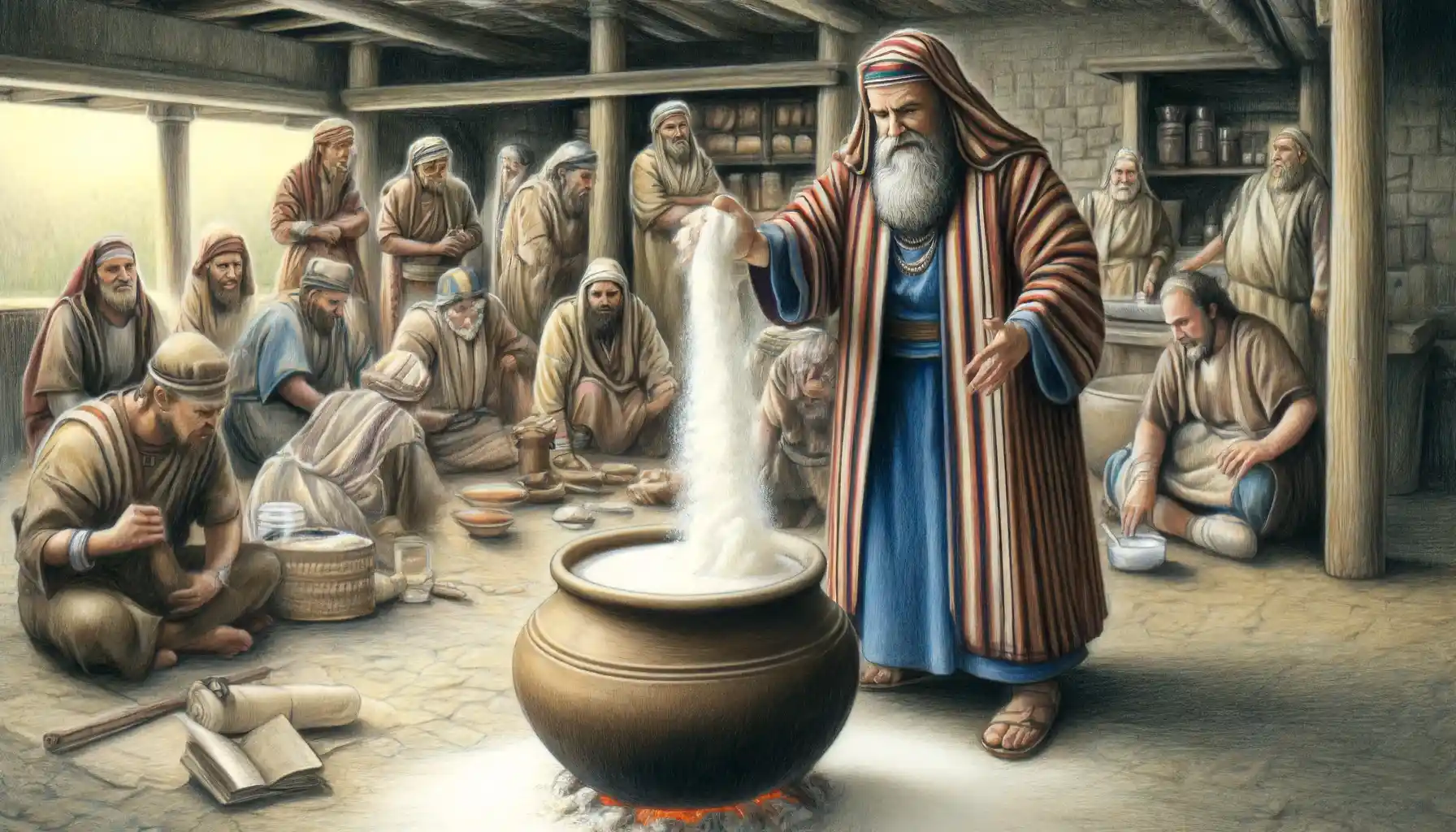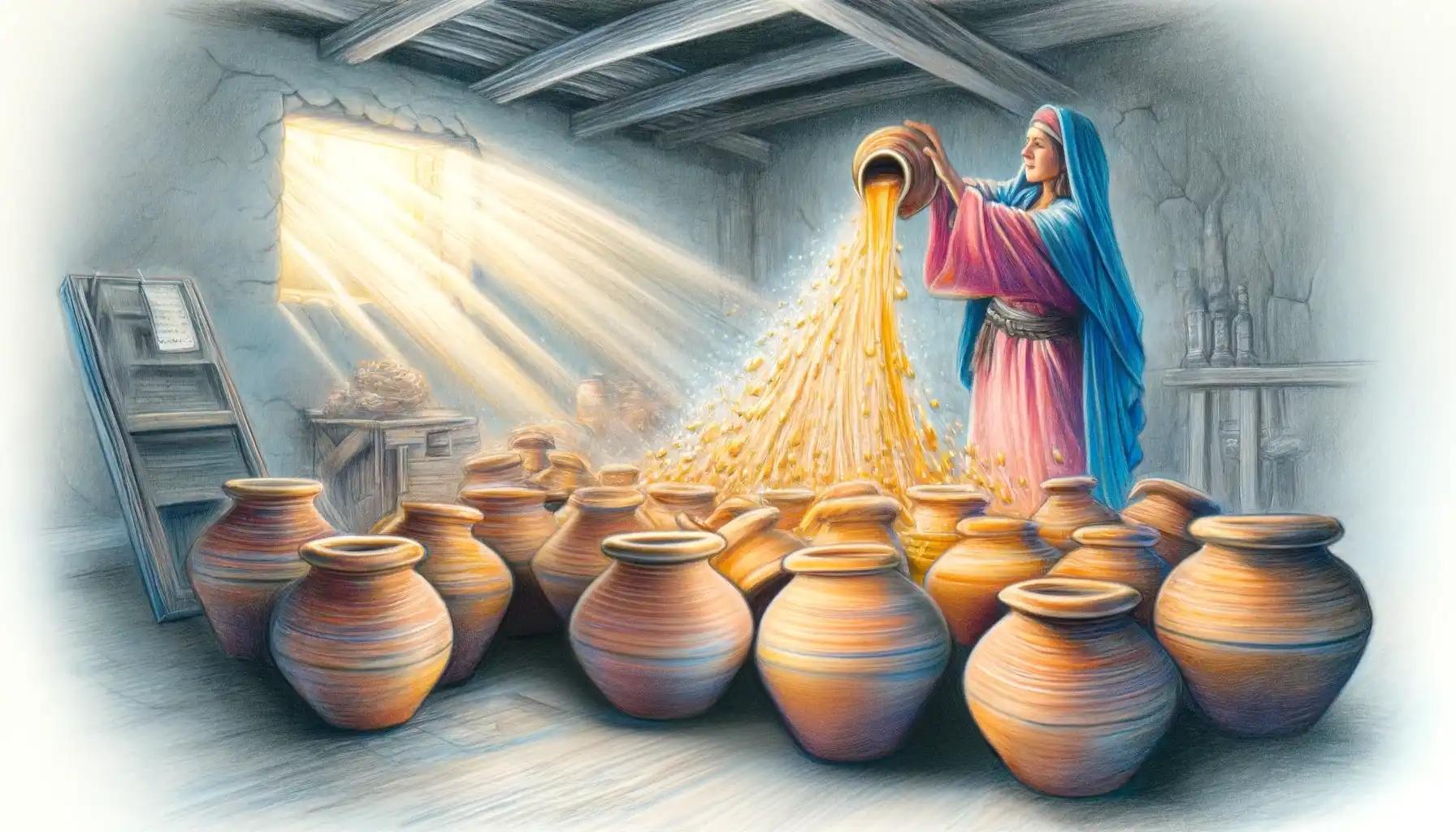Lazarus, a close friend of Jesus who lived in Bethany, was raised from the dead by Jesus after being in the tomb for four days, demonstrating Jesus’ divine power and strengthening the faith of many.
The Fall of Jericho, as detailed in Joshua 6:1-27, describes how the Israelites, led by Joshua and following divine instructions, conquered the fortified city of Jericho by marching around its walls for seven days, resulting in their miraculous collapse on the seventh day, thus marking a significant and symbolic victory in the Israelites’ conquest of the Promised Land. This event highlights themes of faith, obedience to God’s commands, and the power of divine intervention, while also preserving the narrative of Rahab, who was spared for her faithfulness and assistance to the Israelites.
The Feeding of the 5,000, as described in Matthew 14:15-21, is a monumental miracle performed by Jesus Christ, where He compassionately feeds a massive crowd of over five thousand men, excluding women and children, with just five loaves and two fish. This miracle not only demonstrates Jesus’ supernatural ability to provide but also symbolizes His role as the spiritual sustenance for humanity, reinforcing His identity as the Bread of Life.
The Healing of the Centurion’s Servant is a profound biblical narrative found in Matthew 8:5-13 and Luke 7:1-10, which showcases Jesus’ miraculous healing of a Roman centurion’s gravely ill servant from a distance. This event highlights Jesus’ divine authority and the remarkable faith of the centurion, transcending cultural and religious boundaries and emphasizing the inclusivity of Jesus’ ministry to all who believe, regardless of their background.
The Parting of the Jordan River by Elijah, described in 2 Kings 2:8, marks a crucial moment in biblical narrative, where Elijah, using his cloak, miraculously parts the waters, allowing himself and his successor Elisha to cross on dry ground, symbolizing the transition of prophetic authority and demonstrating God’s enduring support for His prophets.
In the narrative of 1 Kings 17:17-24, Elijah raises the widow’s son from the dead in Zarephath, showcasing God’s supreme power over life and death, and reinforcing the prophet’s authority as a true messenger of Yahweh, thereby deepening the widow’s faith and illustrating the reach of God’s miraculous intervention beyond Israel.
During a severe drought, Elijah miraculously provides a widow in Zarephath with a continuous supply of flour and oil, as recorded in 1 Kings 17:14-16, demonstrating God’s unwavering provision and the profound faith of those who trust in His promises.
In 2 Kings 4:38-41, Elisha miraculously neutralizes a pot of poisonous stew by adding flour, transforming a deadly meal into a safe and nourishing one for the prophets during a famine, demonstrating God’s providence and the prophetic power to safeguard and sustain the community in times of crisis.
In 2 Kings 2:14, Elisha’s parting of the Jordan River with Elijah’s mantle not only demonstrates his succession and the continuity of divine power but also symbolically reaffirms his prophetic authority, echoing the miracles of his predecessor and underscoring the enduring presence of God with Israel’s prophets.
In 2 Kings 4:1-7, the narrative of the Widow’s Oil Multiplied showcases Elisha’s prophetic intervention as he instructs a desperate widow to multiply a small jar of oil by faith and obedience, thereby enabling her to pay off her debts and protect her family from slavery, illustrating God’s miraculous provision and care for the needy.

